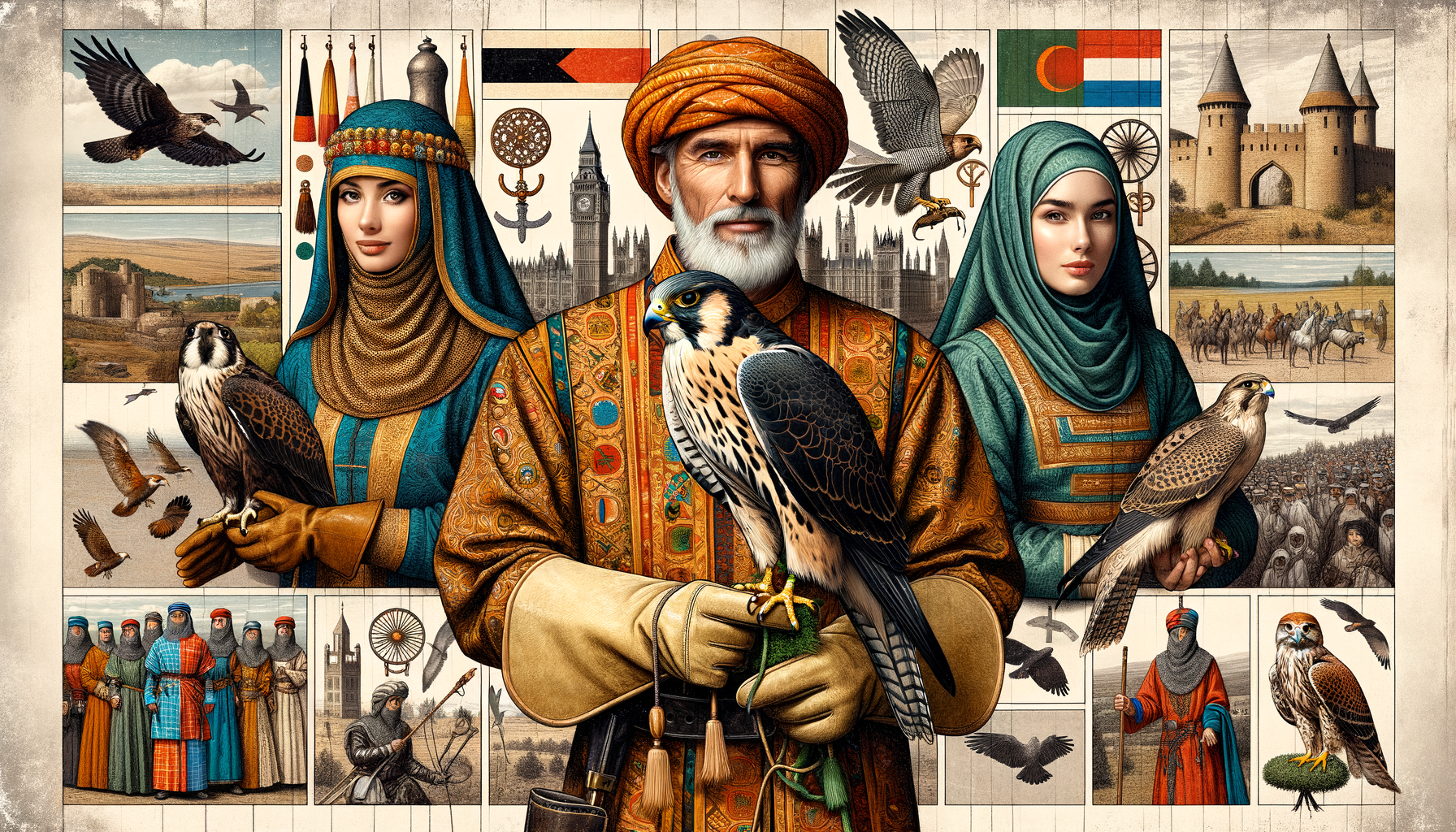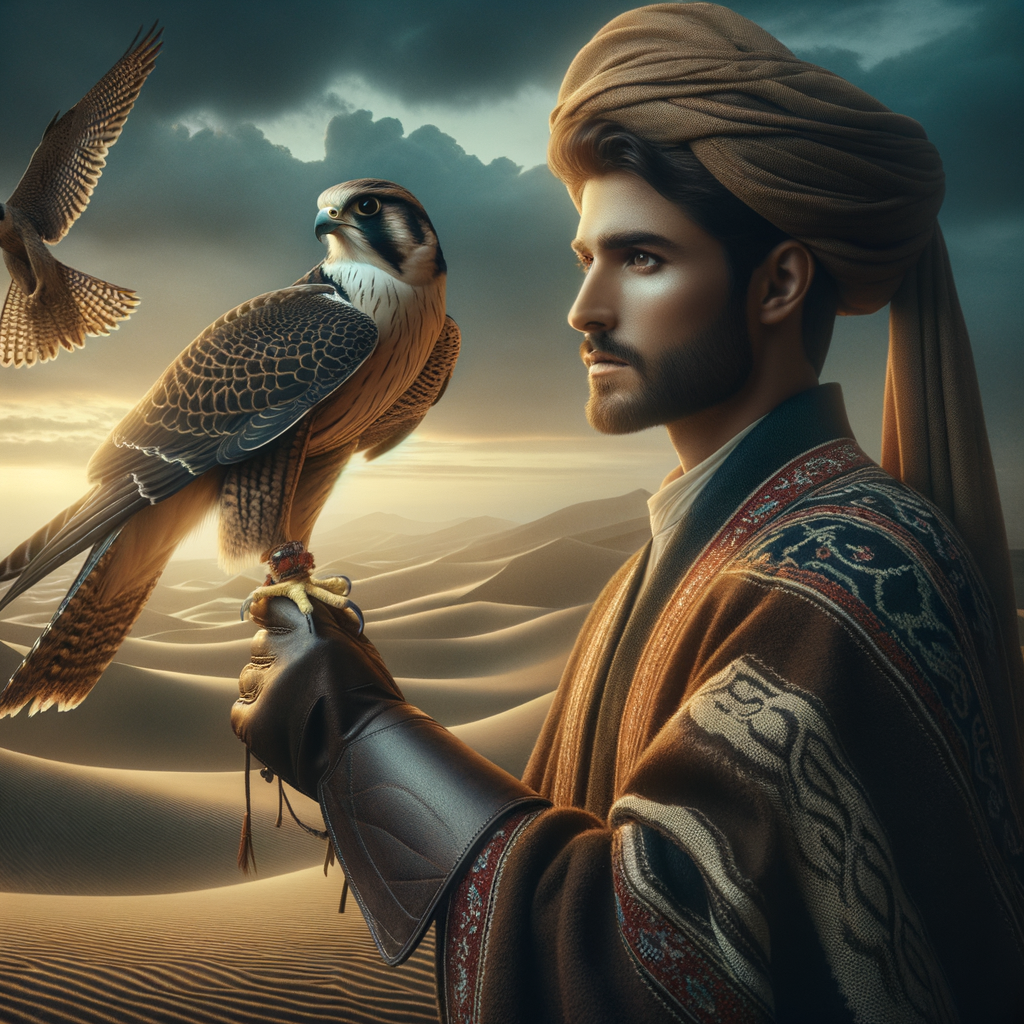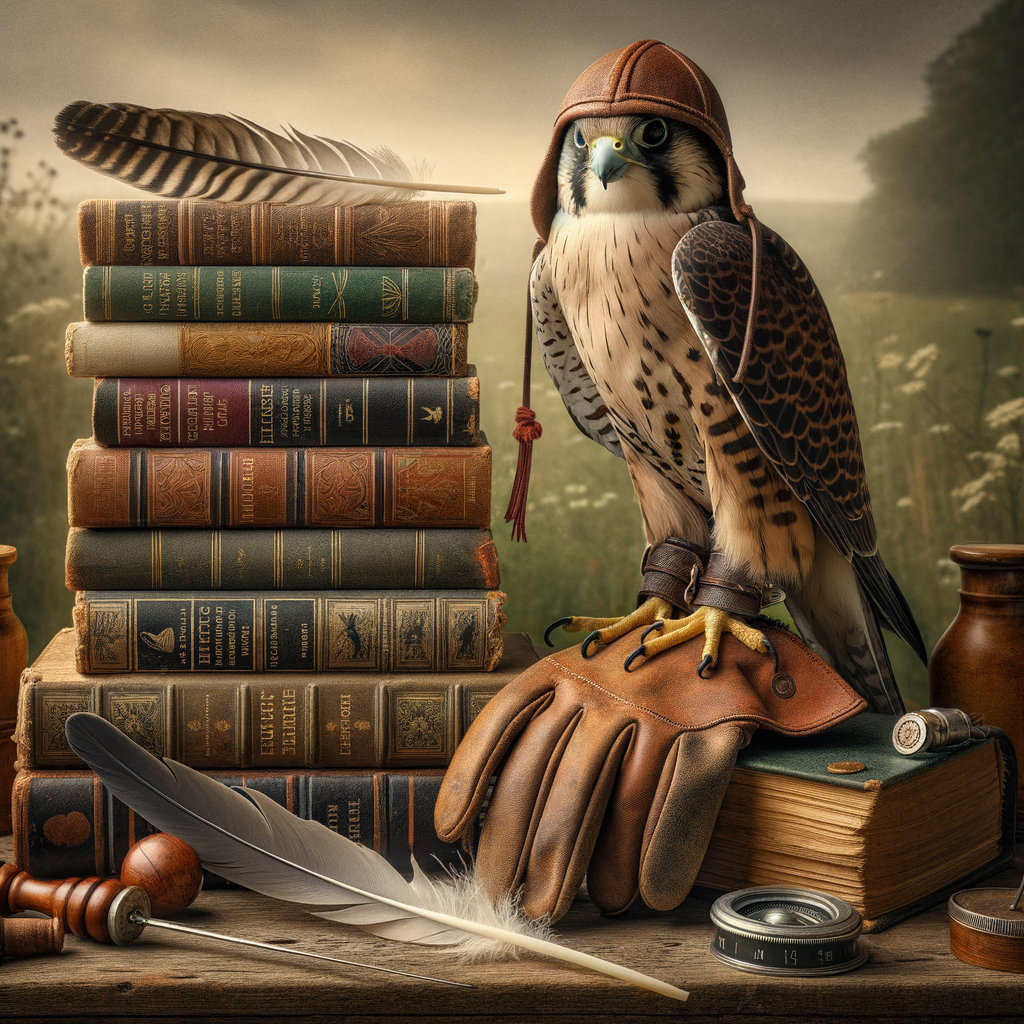Fascinating Insights into Falconry in Different Cultures
- Ancient Tradition: Falconry has been practiced for thousands of years and is one of the oldest hunting methods.
- Global Presence: Falconry is popular all over the world, with distinct techniques and traditions in various regions.
- Cultural Significance: In many cultures, falconry is not just a sport but also holds deep cultural and spiritual significance.
- Nobility and Status: Historically, falconry was often associated with nobility and royalty, symbolizing power and prestige.
- Training and Bonding: The process of training a bird of prey requires patience, skill, and a unique bond between the falconer and the bird.
- Art and Literature: Falconry has inspired countless works of art, poetry, and literature, highlighting its cultural importance.
- Conservation Efforts: Modern falconry often involves efforts in conservation and protecting endangered bird species.
- Modern Adaptation: While rooted in ancient traditions, falconry has adapted to contemporary practices and continues to thrive today.
- Educational Value: Falconry teaches valuable lessons about wildlife, ecosystems, and the natural world.
- Community and Heritage: Practicing falconry creates a sense of community and helps preserve important cultural heritage.
Explore the incredible world of falconry and discover how this ancient practice continues to captivate and inspire across generations and cultures!
Discovering Falconry Across Cultures: A Journey of Tradition and Nature
Ever imagined a bond as deep and legendary as that of the ancient Irish Celts and their mythical tales of bravery? Well, when it comes to falconry, the age-old practice of hunting with trained birds of prey, it’s like stepping right into those timeless stories. Falconry isn’t just about hunting; it’s about embracing a tradition that spans centuries and continents, creating a connection between humans and the majestic birds of the sky.
Here at Learn Falconry, where passion for this incredible art form comes alive, we believe in sharing the magic and mystery of falconry from different corners of the world. Picture yourself on the green hills of Ireland, where the tradition of storytelling is as rich as a warm cup of tea by the fireside. Just as these stories pass through generations, so does the heritage of falconry, passed down from culture to culture, each adding its own unique flavor.
In this article, we’ll take you on a journey through time, exploring how various cultures have embraced falconry, making it a cherished part of their heritage. From the noble courts of medieval Europe to the vast deserts of the Middle East, and the ancient empires of Asia, you’ll see how falconry has woven itself into the fabric of human history.
So grab your imagination like the reins of a proud Irish steed, because the adventure we’re about to embark on is as exciting and enriching as the legends of old. Keep reading to uncover the importance of falconry in different cultures and how it continues to mesmerize and inspire people worldwide.
The Cultural Significance of Falconry Around the World
Falconry, the art of training birds of prey to hunt, has been practiced for thousands of years. It’s amazing to see how falconry traditions have developed uniquely in different cultures globally. Let’s explore how various societies have embraced and valued this incredible skill.
Cultural Falconry: A Global Perspective
Falconry is not just about hunting; it’s deeply woven into the fabric of many cultures. For instance, in Arabic culture, falconry is a revered tradition that dates back to ancient times. It symbolizes nobility, patience, and a deep respect for nature. Falcons are often seen as a sign of wealth and status.
Similarly, in Japanese culture, falconry, known as “Takagari,” has been practiced by samurais and nobility for centuries. This practice was not only a sport but also a way to develop traits like discipline and precision.
In Europe, falconry reached its golden age during the Medieval period Read more about Falconry in Medieval Europe. Here, it was a popular pastime among the royalty and aristocracy, reflecting social hierarchies and power dynamics.
What Does a Falcon Mean in Different Cultures?
The falcon is more than just a bird; it holds various meanings across cultures. In Ancient Egypt, falcons were associated with the sun god Ra, symbolizing power and protection Discover Falconry in Ancient Egypt. In Native American culture, falcons are often seen as messengers carrying the wisdom of the spirit world and guidance for warriors Learn about Falconry in Native American Culture.
The Significance of Falconry
Falconry has played a significant role in human history, from hunting for food to symbolizing social status. Learning this art can enhance one’s understanding of nature and wildlife Explore Modern Falconry. Moreover, it fosters a unique bond between humans and birds, reflecting mutual respect and cooperation.
The Controversy with Falconry
Despite its rich cultural history, falconry has not been without controversy. Some people argue that it may harm the conservation of wild birds. However, many falconers advocate for ethical practices that support conservation and wildlife protection Read more about Ethical Falconry. Legal regulations are in place to ensure the sustainable practice of falconry, balancing tradition with animal welfare Understand Falconry Laws.
By delving into the fascinating world of falconry, one can appreciate the intricate techniques and cultural heritage that make this ancient art truly remarkable. Whether you are a beginner or an experienced falconer, learning about the diverse practices and meanings in different cultures can enrich your falconry experience Start Your Falconry Journey as a Beginner.
For more in-depth information about the history and evolution of falconry, visit History of Falconry. To learn about the different types of falcons, check out Species of Falcons.
By exploring these various facets of cultural falconry, we can see how this ancient art continues to weave through the tapestry of human history, connecting us with past generations and the natural world.
The Rich Cultural Significance of Falconry Across the World
Falconry is more than just a sport or a means of hunting; it’s a tradition that spans centuries and cultures, symbolizing power, nobility, and conservation. Let’s dive deep into the captivating world of falconry and how it is celebrated across various cultures.
Falconry in Modern Times: Festivals and Competitions
In 2024, falconry enthusiasts from around the globe are coming together for several important events:
- Qatar International Falcons and Hunting Festival (Marmi 2024):
- Dates: December 23, 2023 – December 26, 2023
- Location: Cultural Village Foundation-Katara (Building 33)
- Activities: Includes various tournaments and contests like Al Tala’a, Hadad Al Tahadi Championship, and little falconers and future falconers championships.
- International Association for Falconry (IAF):
- Events: The IAF AGM ‘ NAFA Meet in November 2023, and the Polish Falcons of America National Convention on July 26, 2024.
- Workshop: Introduction to Falconry Workshop on August 24, 2024
Heritage and Recognition: Falconry’s Global Heritage Status
Falconry’s deep-rooted history is acknowledged globally:
- UNESCO Recognition: In 2011, falconry was registered in the global heritage list, emphasizing its significance in preserving heritage and sentimental values passed down through generations.
The Practice of Falconry: Species and Training Methods
Falconry involves using various bird species, each chosen for its unique traits:
- Common Birds Used:
- Falcons (Peregrine Falcons)
- Hawks (Red-Tailed Hawks, Harris Hawks)
- Eagles (Golden Eagles)
- Owls (Eurasian Eagle-Owls)
Training Techniques
One popular method is the “waiting-on” style, where the falcon circles above the falconer and the prey is flushed when the falcon is in the ideal position.
Conservation Efforts Linked to Falconry
Falconers play a pivotal role in conservation:
- Efforts: Many falconers are involved in reintroduction projects and habitat preservation initiatives.
- Example: The preservation of the endangered Saker Falcon, which faces population declines, showcases the conservation impact of falconry.
The Diverse Symbolism of Falcons in Cultures
Native American Traditions
Falcons symbolize courage, strength, protection, and vigilance, reflecting the values of the human spirit.
Eastern and Western Cultures
- In Japan, falcons are symbols of status, wealth, and nobility.
- Celtic Mythology ties falcons to wisdom, longevity, and age through stories of ancient, wise men conversing with hawks.
- Christian Imagery often depicts falcons as representations of natural order and divine guidance.
Baha’i Beliefs
Here, falcons symbolize spiritual insight and spreading the unifying messages of faith.
General Symbolism
Widely across cultures, falcons represent victory, success, ambition, and vision.
The Falconry Experience: Community, History, and Regulation
Falconry continues to be a vibrant activity due to its cultural, historical, and social significance:
- Community Involvement: Falconry brings people together, fostering a sense of unity and shared passion.
- Historical Roots: Dating back over 4000 years, with traces in ancient civilizations like the Hittites and medieval Europe.
- Regulations: Strict rules and federal requirements ensure the welfare of the birds and the integrity of the practice.
Falconry remains a rich, multifaceted tradition that seamlessly weaves together cultural practices, conservation, and modern advances, all while retaining its ancient roots and unique charm.
The Timeless Legacy of Falconry Across Cultures
Falconry holds a special place in the hearts of many cultures around the world. From ancient civilizations to modern times, this art has evolved but retained its core values. Whether showcased at festivals like the Qatar International Falcons and Hunting Festival, supported by organizations like the International Association for Falconry (IAF), or recognized by UNESCO as an intangible cultural heritage, falconry remains a symbol of tradition, conservation, and community.
In 2024, the practice is more relevant than ever, blending historical significance with contemporary concerns such as wildlife conservation and technological advancements. Falcons symbolize courage, wisdom, and protection, reflecting their revered status in many cultures. As we look to the future, the continued practice of falconry reminds us of the importance of balancing tradition with modernity, ensuring that this age-old art continues to inspire and connect people worldwide.
Falconry’s journey through time and across continents underscores its enduring appeal and the universal values it represents. Embracing this fascinating tradition allows us to appreciate the rich tapestry of human culture and our deep connection with nature.



